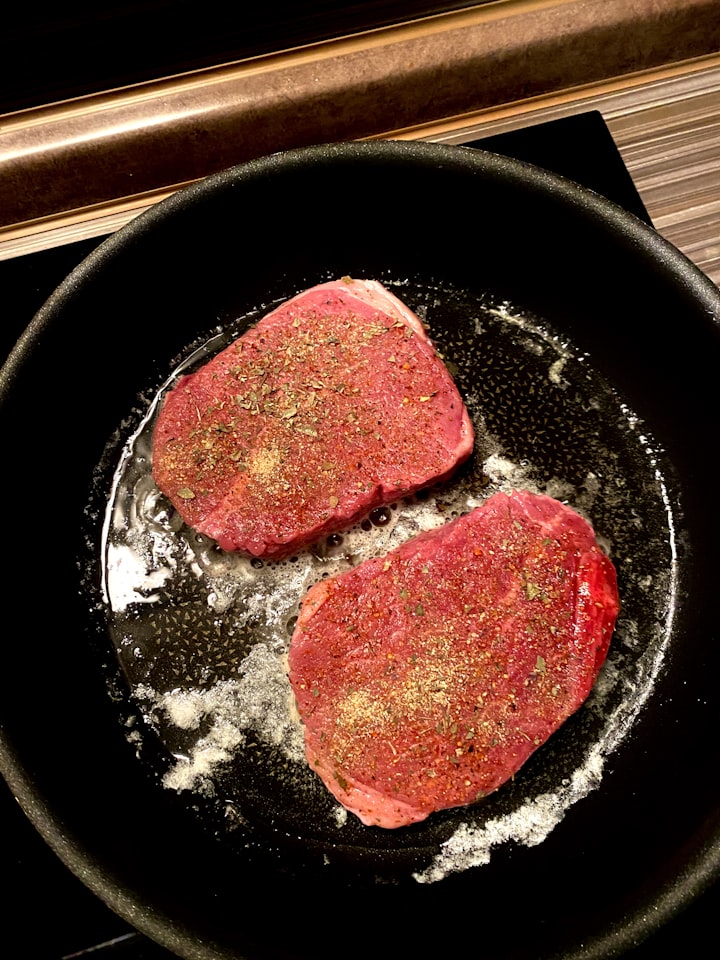Carnivore Diet Meal Plan
A Guide to Eating Meat-Only

The carnivore diet, also known as the all-meat diet, is a popular diet trend that involves consuming only animal products. It eliminates all plant-based foods, including fruits, vegetables, and grains, in favor of meat, fish, eggs, and dairy products. Proponents of the carnivore diet claim that it can lead to weight loss, improved digestion, and other health benefits. However, it's important to approach this diet with caution and ensure that you're meeting your nutritional needs. In this article, we'll provide a guide to a carnivore diet meal plan.
Introduction
The carnivore diet is a strict dietary plan that focuses exclusively on animal products. It has gained popularity in recent years as a way to improve health, lose weight, and increase energy levels. However, the diet is controversial and not without risks. While some people have reported success with this diet, others have experienced negative side effects. If you're considering a carnivore diet, it's important to consult with a healthcare professional first to ensure that it's right for you.
What Can You Eat on a Carnivore Diet?
The carnivore diet involves eating only animal products, including meat, fish, eggs, and dairy products. You can eat all types of meat, such as beef, lamb, and chicken. Seafood, including fish, shrimp, and lobster, is also allowed. Eggs are a good source of protein and can be eaten cooked or raw. Dairy products, such as cheese, butter, and heavy cream, are also allowed.
Benefits of a Carnivore Diet
Advocates of the carnivore diet claim that it can provide several health benefits, including weight loss, improved digestion, increased energy levels, and better mental clarity. Some studies have shown that a high-protein, low-carbohydrate diet can lead to weight loss and improved metabolic health. Meat is also a good source of essential nutrients, such as protein, iron, and vitamin B12. However, it's important to note that the carnivore diet is not without risks, and more research is needed to fully understand its long-term effects.
Risks of a Carnivore Diet
The carnivore diet eliminates all plant-based foods, which can lead to nutrient deficiencies. For example, fruits and vegetables are a good source of fiber, which is important for digestive health. They also provide vitamins, minerals, and other beneficial nutrients that are essential for overall health. Additionally, a diet high in red meat has been associated with an increased risk of certain health problems, such as heart disease and cancer. It's important to approach the carnivore diet with caution and ensure that you're meeting your nutritional needs.
Sample Carnivore Diet Meal Plan
Here's a sample meal plan for a day on the carnivore diet:
Breakfast: Three eggs cooked in butter or bacon fat, three slices of bacon, and a cup of coffee with heavy cream.
Lunch: A 10-ounce steak cooked in olive oil, a cup of bone broth, and a side of sautéed mushrooms.
Snack: Beef jerky or hard-boiled eggs.
Dinner: Grilled salmon with a side of steamed broccoli and a tablespoon of butter.
Dessert: A cup of sugar-free whipped cream.
Tips for a Successful Carnivore Diet
If you're considering a carnivore diet, here are some tips to ensure your success:
- Consult with a healthcare professional first to make sure the diet is safe for you.
- Be mindful of your protein intake. While the carnivore diet is high in protein, it's important to not overdo it. Aim for about 0.8 grams of protein per pound of body weight.
- Drink plenty of water to stay hydrated.
- Consider taking a multivitamin to help ensure that you're getting all the essential nutrients your body needs.
- Experiment with different types of meat to keep meals interesting.
- Listen to your body. If you experience negative side effects, such as constipation or headaches, it may be a sign that the diet is not right for you.
Conclusion
The carnivore diet is a controversial dietary trend that involves eating only animal products. While some people have reported success with the diet, it's important to approach it with caution and ensure that you're meeting your nutritional needs. If you're considering a carnivore diet, consult with a healthcare professional first and be mindful of the potential risks and benefits. With careful planning and attention to your body's needs, you may be able to find success with a carnivore diet.





Comments
There are no comments for this story
Be the first to respond and start the conversation.